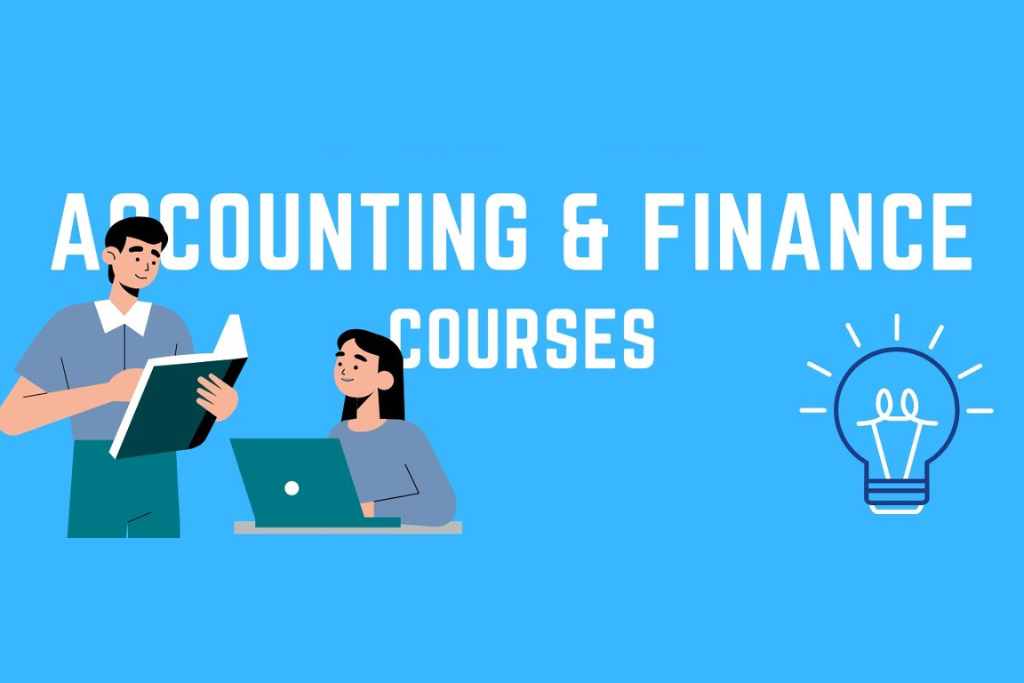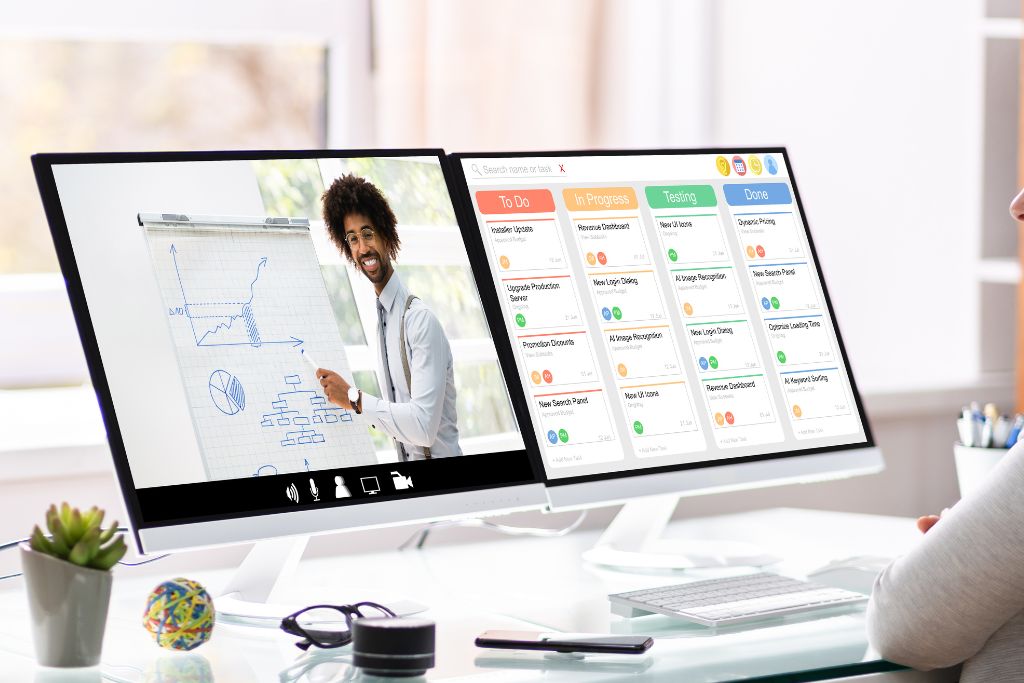
How to Choose the Perfect Finance and Accounting Course
Are you looking to kick-start your career in finance and accounting? Or maybe you’re already working in the industry but want to enhance your skills and knowledge. Whatever the case may be, choosing the perfect finance and accounting course is essential for achieving your professional goals. With so many options available, it can be overwhelming to decide. But fear not! In this blog post, we will guide you through the process of selecting the ideal course that aligns with your aspirations. From understanding different types of courses to considering factors like university reputation and delivery format, we’ve got you covered. So let’s dive in and discover how to find the perfect finance and accounting course that will propel you towards success!
The Importance of Finance and Accounting Education
Finance and accounting education plays a crucial role in today’s competitive business landscape. Whether you aspire to work in the financial sector or manage the finances of your own business, a strong foundation in finance and accounting is essential.

Understanding finance and accounting principles allows individuals to make informed decisions regarding investments, budgeting, and financial planning. This knowledge empowers individuals to navigate complex financial scenarios with confidence.
Finance and accounting education provides individuals with the skills necessary for analyzing data and interpreting financial statements. Employers from various industries highly value these analytical skills because they help professionals recognize trends, evaluate risks, and offer strategic business recommendations.
Moreover, having expertise in finance and accounting opens up a wide range of career opportunities. From working as an accountant or auditor to becoming a financial analyst or investment banker, there is no shortage of options for those with a solid educational background in this field.
Furthermore, finance and accounting education equips individuals with important ethical considerations. As financial professionals handle sensitive information related to money management, it is essential for them to adhere to ethical standards that ensure transparency and trustworthiness within their organizations.
In conclusion (not part of the answer), investing in finance and accounting education can provide numerous benefits for aspiring professionals looking to excel in their careers. By gaining knowledge about fundamental concepts while developing practical skills needed for real-world applications, individuals can position themselves as valuable assets within any organization they choose to pursue.
Different Types of Finance and Accounting Courses
When it comes to pursuing a career in finance and accounting, there are various types of courses available that can help you gain the necessary knowledge and skills. Whether you’re just starting your journey or looking to enhance your existing expertise, choosing the right course is crucial.

One type of course you may consider is a degree program in finance or accounting. These programs provide a comprehensive education that covers all aspects of the field, including financial management, auditing, taxation, and more. They typically require several years of study, but offer in-depth knowledge and qualifications that can open doors to lucrative job opportunities.
For those who prefer a shorter time commitment or want to specialize in specific areas, there are also certificate programs available. These courses focus on specific topics such as financial analysis, bookkeeping, or tax preparation. They provide targeted training that can be completed within a few months or even weeks.
Alternatively, if you prefer flexibility and convenience, online courses have become increasingly popular. Many reputable universities now offer online programs in finance and accounting that allow students to learn from anywhere at their own pace. These courses often include interactive modules, video lectures, and virtual discussions with instructors.
Lastly, the option of professional certifications should not be overlooked.
Certifications like Certified Public Accountant (CPA), Chartered Financial Analyst (CFA), or Certified Management Accountant (CMA) can greatly boost your credibility within the industry.

These certifications usually require passing exams after meeting certain educational requirements, but they demonstrate specialized knowledge and dedication to professional growth.
Overall, the key is to choose a course that aligns with your goals, time availability, and learning style.
Whether it’s pursuing an intensive degree program, gaining specialized skills through certificate courses, enjoying flexible online learning options, or obtaining valuable certifications, finding the perfect fit will set you on the path toward success in finance and accounting.
Factors to Consider When Choosing a Course
Choosing the perfect finance and accounting course is no easy task. With so many options available, it’s important to consider a few key factors before making your decision.
You need to think about your career goals. What area of finance or accounting are you interested in? Are you looking for a general overview, or do you want to specialize in something specific like auditing or financial analysis? Understanding your career aspirations will help you narrow down your options and find a course that aligns with your goals.

Another factor to consider is the reputation of the institution offering the course. Look for universities or educational institutions known for their strong finance and accounting programs. A good reputation can go a long way when it comes to job prospects and networking opportunities.
Next, think about the curriculum and content of the course. Does it cover all the necessary topics and skills you want to learn? Is there practical application through case studies or internships? Make sure the course offers a well-rounded education that will prepare you for real-world challenges.
Consider whether you prefer online or in-person learning. Online courses offer flexibility but may lack personal interaction with professors and classmates. On-campus courses provide face-to-face interactions but may require a greater time commitment.
Don’t forget about cost and affordability. Evaluate whether the tuition fees fit within your budget without compromising on quality.
By taking these factors into consideration, you can make an informed decision when choosing the perfect finance and accounting course that suits both your needs and aspirations!
Top Universities for Finance and Accounting
When it comes to pursuing a finance and accounting course, choosing the right university is crucial. Not all universities offer the same level of education and resources in this field. Here are some top universities that stand out for their exceptional finance and accounting programs.

Harvard University: Known for its prestigious reputation, Harvard offers a comprehensive curriculum in finance and accounting. The faculty comprises experts in the field who provide valuable insights and guidance to students.
Stanford University: With its strong emphasis on research and innovation, Stanford’s finance and accounting courses equip students with analytical skills essential for success in this industry. The university also has excellent networking opportunities with industry leaders.
London School of Economics (LSE): LSE is renowned for its rigorous academic standards in finance and accounting education. Students benefit from exposure to international perspectives through diverse student populations and faculty members.
Wharton School at the University of Pennsylvania: Wharton’s world-class faculty brings extensive industry experience into the classroom, ensuring practical learning experiences that prepare students for real-world challenges.
Massachusetts Institute of Technology (MIT): MIT’s Sloan School of Management offers cutting-edge programs that integrate technology with financial principles, equipping students with skills highly sought after by employers.
These universities have consistently produced successful graduates who go on to excel in various roles within the finance and accounting sector worldwide
Online vs In-Person Courses
When it comes to choosing a finance and accounting course, one of the decisions you’ll have to make is whether to opt for an online or in-person program. Both options have their advantages and disadvantages, so it’s important to consider your own learning style and preferences.

Online courses offer flexibility, allowing you to study at your own pace from anywhere in the world. They often provide access to video lectures, interactive quizzes, and discussion forums where you can connect with fellow students. This format is ideal for those who need a flexible schedule or prefer self-paced learning.
On the other hand, in-person courses provide a more traditional classroom experience. You have direct interaction with instructors and classmates, which can be beneficial for networking opportunities and immediate feedback on assignments. Being physically present in a classroom setting also offers structure and accountability.
However, keep in mind that online courses require self-discipline, as there are no set class times or face-to-face interactions. Additionally, some employers may give preference to candidates with degrees earned through traditional in-person programs.
The choice between online and in-person courses depends on your individual circumstances and goals. Consider factors such as time commitments, preferred learning style, career aspirations, and available resources before deciding what suits you best.
Real-life examples of Successful Finance and Accounting Graduates
Now that we have discussed the importance of finance and accounting education, explored different types of courses, and considered various factors when choosing a course, let’s take a look at some real-life examples of successful individuals who have pursued careers in finance and accounting.

One such example is Warren Buffett. Known as one of the most successful investors in the world, Buffett started his career in finance by studying under Benjamin Graham at Columbia University. He went on to become the chairman and CEO of Berkshire Hathaway, amassing a net worth in the billions through his investment expertise.
Another inspiring figure is Mary Barry, who holds an undergraduate degree in electrical engineering as well as an MBA. She became CEO of General Motors Company (GM) in 2014 after working her way up through various financial positions within the company. Her ability to combine her analytical skills with business acumen has earned her recognition as one of Fortune’s most powerful women.
Sundar Pichai also exemplifies how a strong foundation in finance can lead to great success. After completing an MBA from Wharton School at the University of Pennsylvania, Richie joined Google, where he eventually rose to become CEO of both Google and its parent company, Alphabet Inc. His understanding of financial strategies played a crucial role in shaping Google’s growth and expansion into diverse sectors.
These examples illustrate that obtaining a finance or accounting education can open doors to numerous opportunities across industries. Whether you aspire to be an investor like Warren Buffett or lead a multinational corporation like Mary Barry or Sundar Pichai, having a solid understanding of finance principles will undoubtedly set you on the path towards success.
Choosing the perfect finance and accounting course requires careful consideration based on your goals, interests, learning preferences, availability options (online vs. offline), reputation, and rankings of universities offering these courses, all while keeping your budget constraints into account.
By evaluating these factors, you can make an informed decision that aligns with your career aspirations.
For additional resources tailored for educators, explore “Online Resources For Teachers” to find specialized courses and materials designed to enhance teaching techniques and advance your expertise in finance and accounting.




